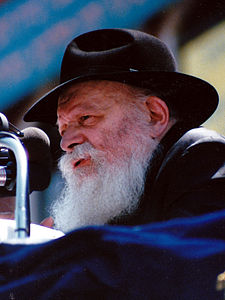
Rebbe: The Life and Teachings of Menachem M. Schneerson, the Most Influential Rabbi in Modern History by Joseph Telushkin , Harper Wave
Joseph Teluskin's book provides much interesting information on the Rebbe's views and influence. It's organized by topic, much like Rabbi Telushkin's Jewish Literacy work. Here, he presents many first-hand anecdotes and summaries. A reader can learn a lot from this book. This book is highly recommended inspite of some shortfalls in content.
However, it is not a biography. There's little about the Rebbe's childhood or family life. Although there are some anecdotes about his college studies in Berlin and at the Sorbonne, the book offers no insight or speculation into why the young Schneerson chose to study what he did and what affect, if any, his university studies may have had on his mature thought. These are topics one would expect to find in a biography.
One glaring omission is in this book is the limited attention it gives to the Rebbe's torah and talmud commentaries. This work is a massive and important part of his accomplishment, along with the influential Chabad House program, if not as prone to interesting story-telling.
The book provides several accounts from Zalman Schachter-Shalomi of the early years of the Rebbe's leadership. These stories are interesting and seem to shed some light on the young Rebbe's personality. However, I am surprised that nowhere in the book does Rabbi Telushkin mention that Schachter-Shalomi eventually broke from Lubavitch and started his own movement.
This book is worth reading for anyone interested in learning about the life and unique, impressive accomplishments of the Rebbe. But it is a collection of stories more than a biography.

No comments:
Post a Comment